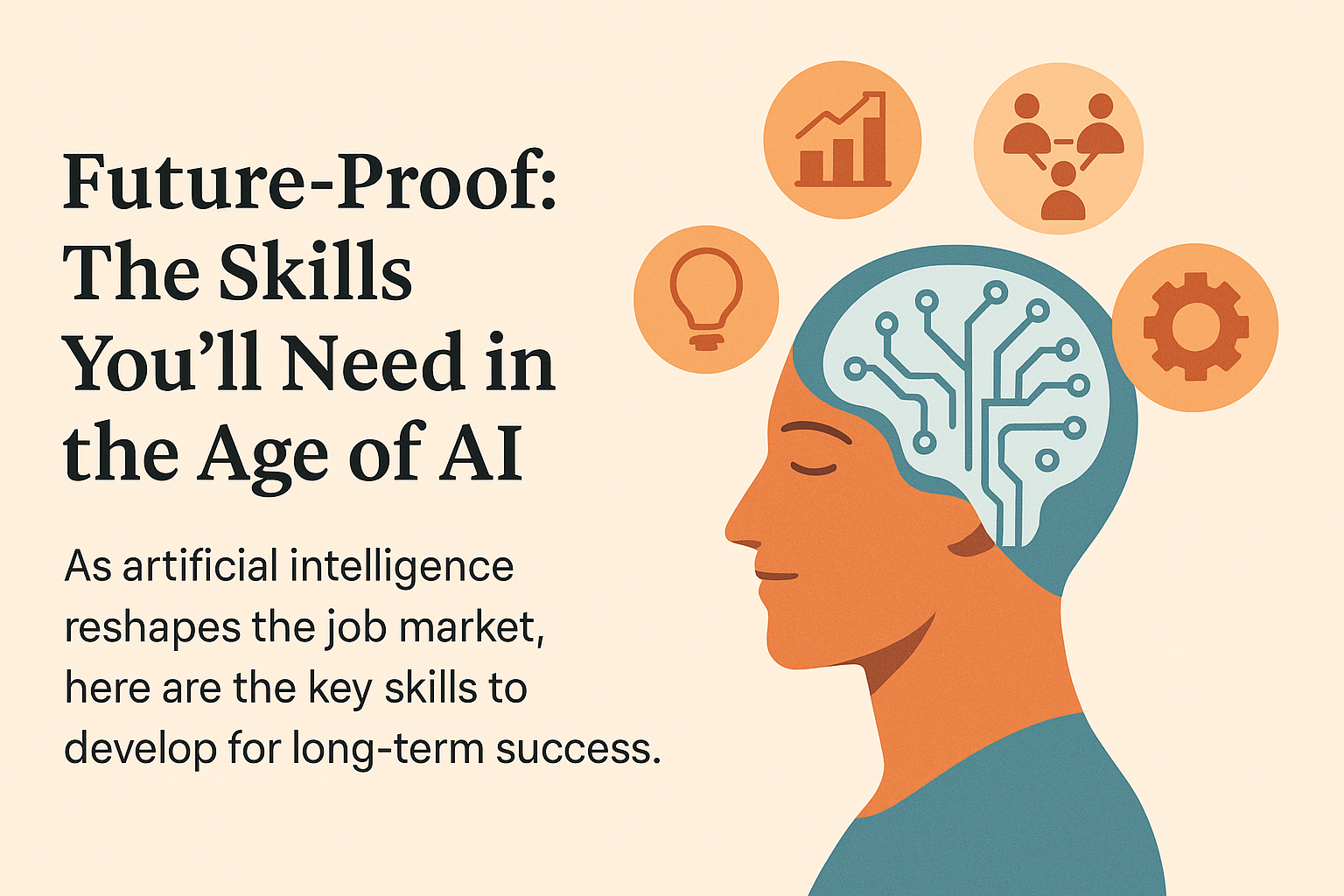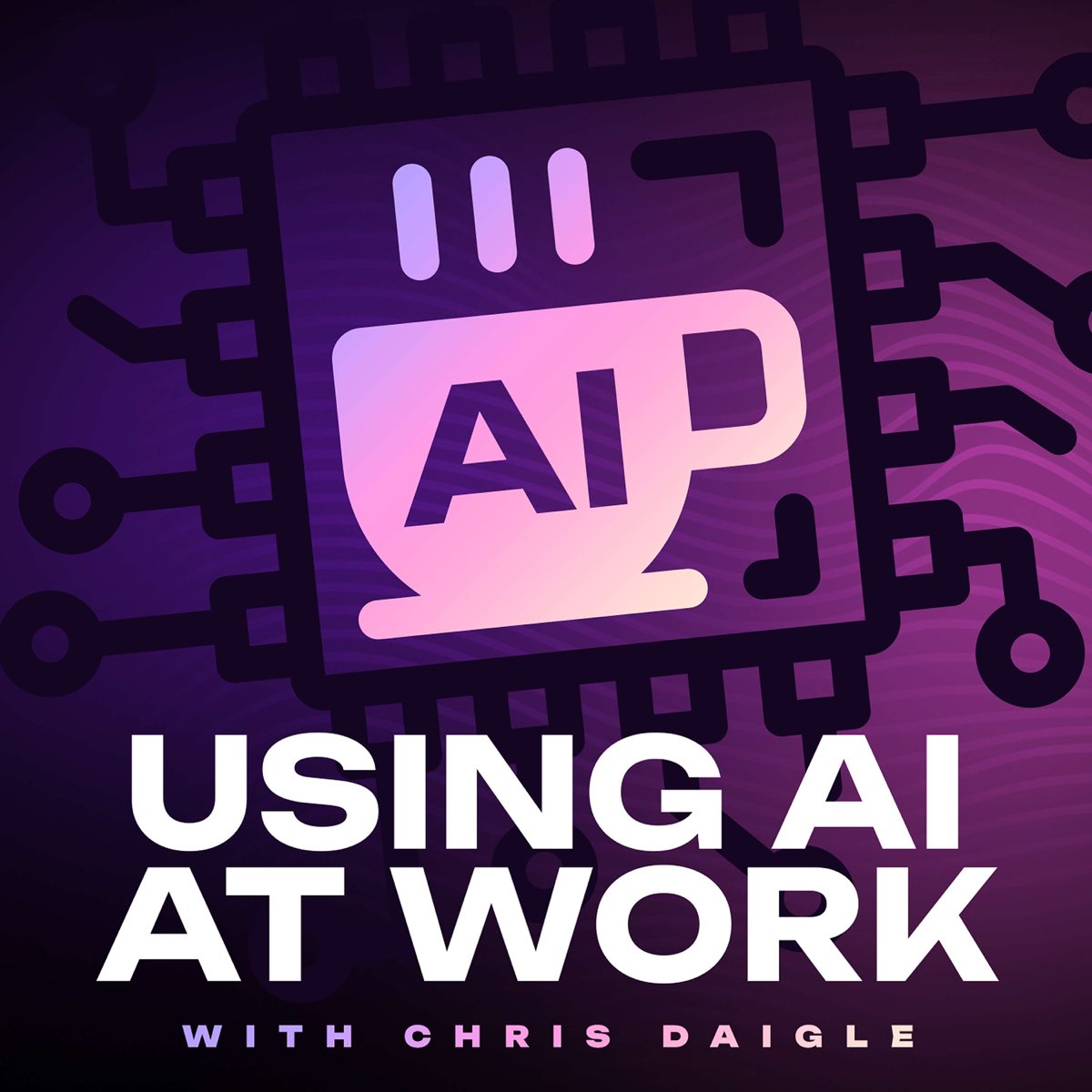Future-Proof: The Skills You’ll Need in the Age of AI
The world of work is changing—fast. Artificial intelligence, automation, and rapid technological innovation are transforming everything from healthcare and finance to art and education. In the next 5 to 10 years, many jobs will look dramatically different—or won’t exist at all. But while that may sound daunting, it's also full of opportunity. The key to success? Building the right skillset now to thrive in the world of tomorrow.
🧠 Why AI Is Reshaping the Job Market
AI isn’t just a tool—it’s becoming a co-worker, a decision-maker, and in some cases, a creator. From chatbots answering customer service questions to generative AI designing prototypes, the landscape is evolving at breakneck speed. But while machines may be learning fast, they’re not replacing everything.
Jobs that require repetitive or predictable tasks are most vulnerable to automation. But roles that involve creativity, empathy, strategy, or human connection? Those are becoming more valuable than ever.
🔮 The Top Future-Ready Skills
Here are the core skills students and professionals should start building today to stay ahead of the curve:
1. Critical Thinking and Problem Solving
In a world where AI can give you instant answers, the real power lies in asking the right questions. Critical thinking means evaluating information, making sense of complexity, and solving problems with logic and creativity. It's not about memorizing facts—it's about connecting the dots.
How to build it:
- Project-based learning
- Open-ended challenges and competitions
- Debates and case studies
2. Digital Literacy and Data Fluency
You don’t have to be a coder to thrive in tech—but you do need to understand how digital tools and data work. From understanding how AI models make decisions to interpreting trends in data, digital literacy will be the new baseline skill across all careers.
How to build it:
- Learn the basics of AI, machine learning, and data analysis
- Explore platforms like Scratch, Python, or spreadsheets
- Participate in digital maker projects
3. Creativity and Innovation
AI is a powerful tool, but it still needs human imagination to dream up what’s next. Whether it’s designing a product, writing a story, or inventing a new business, creativity is a skill that sets people apart in an increasingly automated world.
How to build it:
- Hands-on STEAM (Science, Tech, Engineering, Arts, Math) activities
- Design thinking challenges
- Art, music, and media creation
4. Collaboration and Emotional Intelligence
AI can process information—but it can’t build trust, lead a team, or understand nuance the way humans do. Future workplaces will need emotionally intelligent leaders and communicators who can work across cultures and technologies.
How to build it:
- Group projects
- Peer mentoring
- Role-play and team-building experiences
5. Adaptability and Lifelong Learning
The biggest constant in the future? Change. The ability to learn, unlearn, and relearn will be one of the most essential skills in a rapidly shifting job market. It's not about mastering a single job—it's about staying ready for the next opportunity.
How to build it:
- Embrace curiosity and self-directed learning
- Try new tools and platforms regularly
- Reflect on successes and failures
🛠️ What Educators and Parents Can Do
Preparing for the future starts early. Whether in school, afterschool, or at home, learning environments should:
- Prioritize hands-on, real-world projects
- Encourage experimentation and resilience
- Integrate AI education in accessible, age-appropriate ways
- Foster both technical and human skills
Programs like those at Guild Hall Learning offer a powerful model: blending design, engineering, creativity, and critical thinking in a collaborative space where learners take ownership of their growth.
🚀 The Future Is Being Built—Every Day
The jobs of tomorrow aren’t just about AI—they’re about humans working with AI. The most successful individuals won’t be the ones who know the most facts, but the ones who can think critically, learn constantly, and create fearlessly.
So whether you're a student, educator, parent, or lifelong learner: now’s the time to invest in future-ready skills. Because the future isn’t something we wait for—it’s something we build.











.jpg)














.svg)
.svg)

